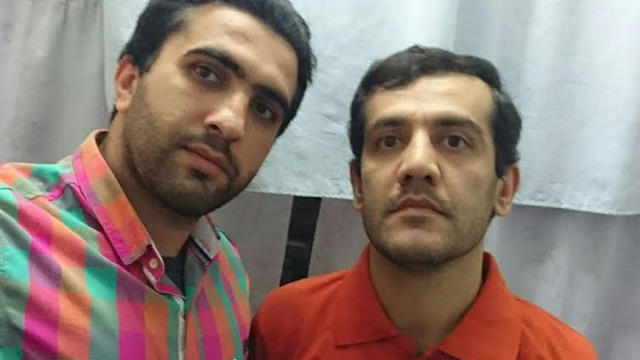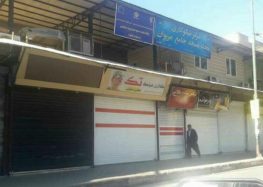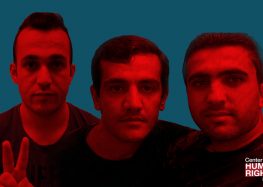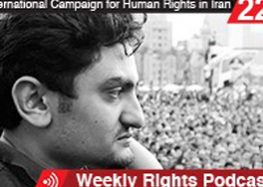Political Prisoners on Death Row in Iran Fear Reinstatement of Long-Term Visitations Ban

Political prisoners Zanyar Moradi and Loghman Moradi, both ethnic Kurds on death row in Rajaee Shahr Prison in Karaj, have been denied visitations since mid-December 2016 without reason and worry a previous ban that lasted for years has been reinstated.
“I don’t have a good feeling about this visitation ban,” Loghman Moradi told the Campaign for Human Rights in Iran in an interview from prison on January 12, 2017. “I don’t know what’s about to happen.”
“After our arrest in 2009 and until 2013, we were banned from having any visits,” he added. “In 2013, they allowed us visitations like all the other prisoners. Now the ban has been reinstated. I don’t know what their intention is. Do they want to put pressure on us?
“A month ago, Mr. Haji-Moradi, who recently replaced Mr. Hajilou as deputy prosecutor of Tehran, decided he doesn’t want to let us, meaning me and Loghman, to have visitations. I wrote letters to both Mr. Hajilou and Mr. Haji-Moradi, but neither has written back. I’m not optimistic. It can’t be good if they have isolated us after three years of regular visitations,” said Loghman Moradi.
Zanyar Moradi and Loghman Moradi (no relation) were sentenced to death in 2009 for “involvement in the murder of the Marivan Friday imam’s (prayer leader’s) son” and “moharebeh (enmity with God).” The men denied the charges in court and said they only confessed to the murder because agents of the Intelligence Ministry had tortured them.
Members of ethnic or religious minorities in Iran who engage in criticism of the government are singled out by the Judiciary for particularly harsh treatment, and there is a well-documented history of the Judiciary disproportionately meting out capital punishment to minority activists.
Zanyar Moradi, 27, and Loghman Moradi, 29, were held in 2009 for nine months in the Intelligence Ministry’s detention center in Sanandaj, the capital of Kurdistan Province, and six months in Sanandaj Central Prison before being transferred to Ward 209 in Evin Prison in Tehran.
On December 22, 2010 they were sentenced to death by Judge Abolqassem Salavati of Branch 15 of the Revolutionary Court and transferred to Rajaee Shahr Prison.
“We’ve been waiting for a new trial for more than two years now, but they won’t try us because we have lots of witnesses and evidence that point to our acquittal, but that would be hard to accept for the Intelligence Ministry,” Zanyar Moradi told the Campaign in December 2016.
“We have been held in prison for eight years for what?” he added. “A civil servant went to the Friday prayer leader of Marivan and told him that we did not kill his son. There are other reasons why they won’t release us and the main one is that the Intelligence Ministry doesn’t want to be embarrassed.”
“I demand a fair trial, a trial without bias where I can defend myself against any evidence the Intelligence Ministry wants to present,” he said. “That’s all I ask. I know myself and I insist on my innocence.”
“We Were Tortured”
Speaking about the aftermath of their arrest on August 2, 2009 in Marivan, Kurdistan Province, Zanyar Moradi said: “We were tortured a lot. I still have the marks on my body. I was even operated on in 2012 and 2013 for my injuries. I have slipped discs. I was only 19. I didn’t know anything about national security and I certainly didn’t have the tolerance for torture. If they had told me to take responsibility for every assassination in Iran since 1970, I would have. I just wanted that terrible torture to end. They had my home address and threatened my mother and little sister. We had no choice. We said we’d accept everything they wanted. They wrote the scenario they were looking for and we signed it.”
“Judge Salavati treated us very badly and told us that we should write down anything he says and ask for pardons,” he added. “But we didn’t trust the system anymore. We wrote the whole truth. But the judge rejected everything we wrote as nonsense.”
The Supreme Court upheld the Revolutionary Court’s ruling on July 9, 2011, but the men’s fate has also been tied to parallel cases that have yet to convene in the Criminal Court.



